Natural skincare products are becoming increasingly popular, but can consumers be sure that what they buy is actually natural, or is ‘natural’ just a buzzword used by companies to sell more products for higher prices? To get this straight, we looked at 100 of the best-selling natural skincare products to establish how many of them were truly natural.
Key findings:
- Only 42% of “natural skincare products” are truly natural
- Majority (58%) of skincare products marketed as “natural”’ contain synthetic ingredients
- Skincare products marketed “natural” are 24% more expensive than “regular” skincare products
- All of the “natural” serums in the study contained at least one synthetic ingredient
- Nearly eight in ten (78%) of “natural” face masks contains synthetic ingredients
- “Natural” skincare products contain on average 2.4 synthetic ingredients
Natural Beauty
Natural beauty and skincare products are on the rise, and are expected to continue to grow 5% annually from 2020 to 2027. While natural ingredients are not always guaranteed to be better, safer or healthier than many synthetic ingredients, an increasing number of consumers are actively seeking out natural products to ensure they stay away from ingredients that could potentially be harmful to their health and the environment.
In the US, there is no regulation on how the word ‘natural’ is used when marketing beauty and skincare products. This has led to many products being marketed as “natural” while they contain synthetic ingredients.
Here at The Derm Review, we wanted to investigate how widely the word ‘natural’ is (mis)used to market non-natural skincare products. To do so, we looked at the ingredient list of the 100 best-selling skincare products containing the word “natural”. Here is what we found.
The cost of natural skincare
Our research found that the price of skincare products marketed as “natural” were on average 24% more expensive than skincare products that didn’t contain the word.
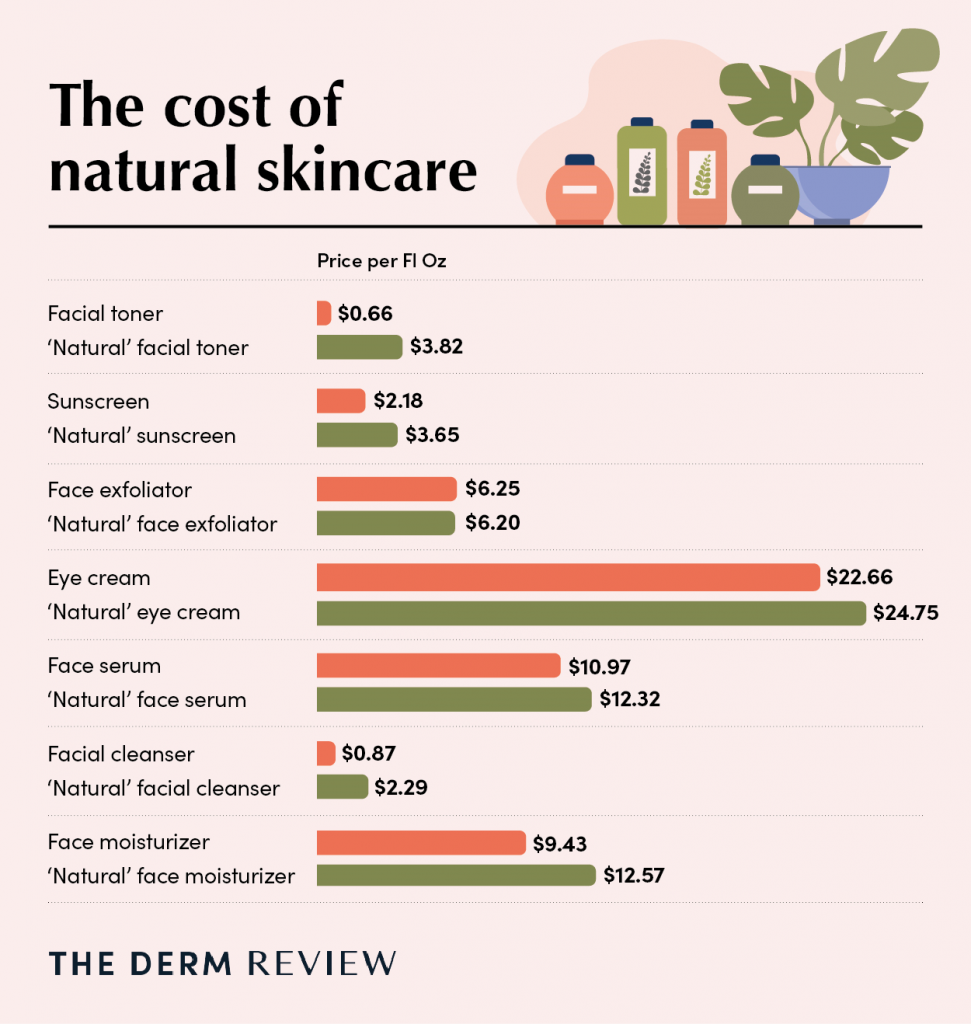
How many ‘natural’ skincare products are truly natural?
Our study found that out of the 100 best-selling natural products, only 42 were truly natural. The majority (58%) of products included at least one synthetic ingredient. The average number of different synthetic ingredients used in “natural” skincare products was found to be 2.4.
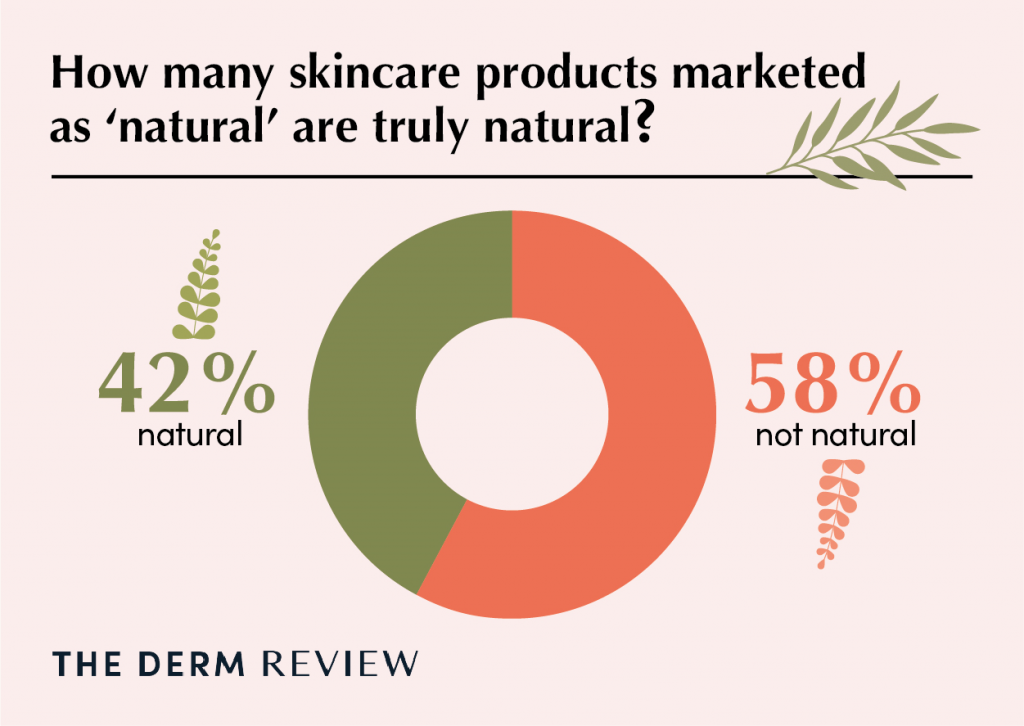
The most commonly used synthetic ingredients
Ethylhexylglycerin is the most commonly used synthetic ingredient and was found in 24% of all the “natural” products. It is deemed safe and is generally used in low concentrations in skincare products however, it can cause minor irritation to the skin and eyes if high concentrations are used.
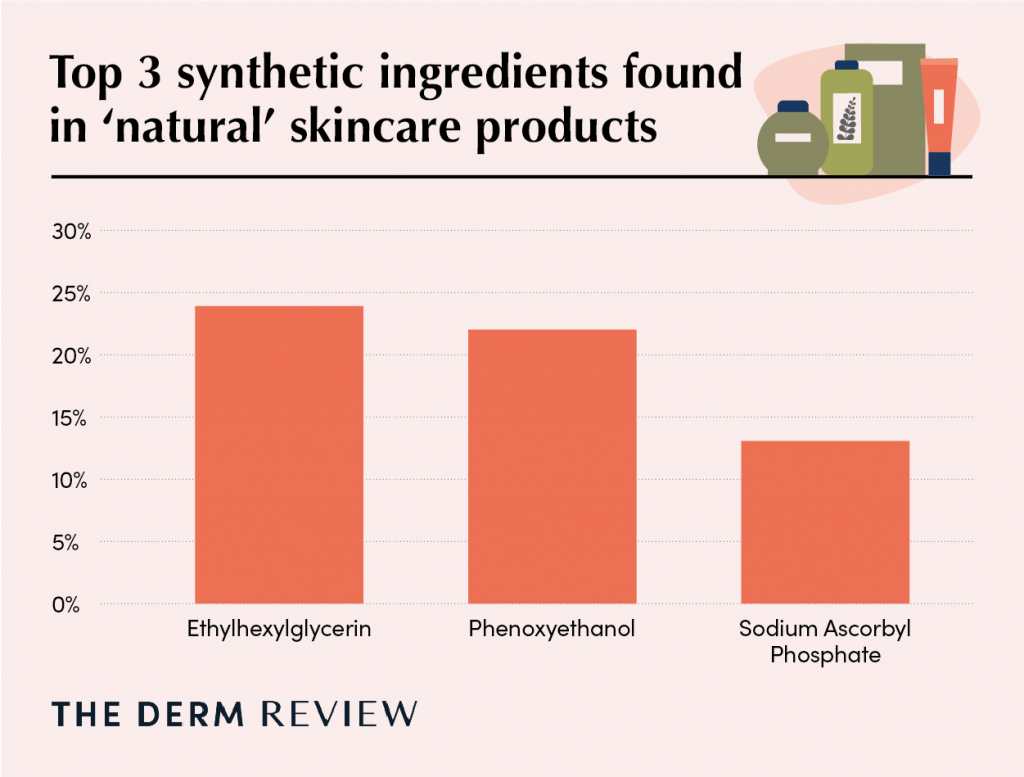
The second most commonly found synthetic ingredient was Phenoxyethanol which was found in 22% of the products. Like Ethylhexylglycerin, it is considered safe but can cause irritation when high concentrations are used. It is used mainly as a preservative and anti-microbial agent used to help your products last longer and prolong their safety and efficacy.
Sodium Ascorbyl Phosphate comes up as the third most widely used synthetic agent and was found in 13% of the “natural” products. While being a synthetic agent, it is generally safe for all skin types, and is a type of vitamin C.
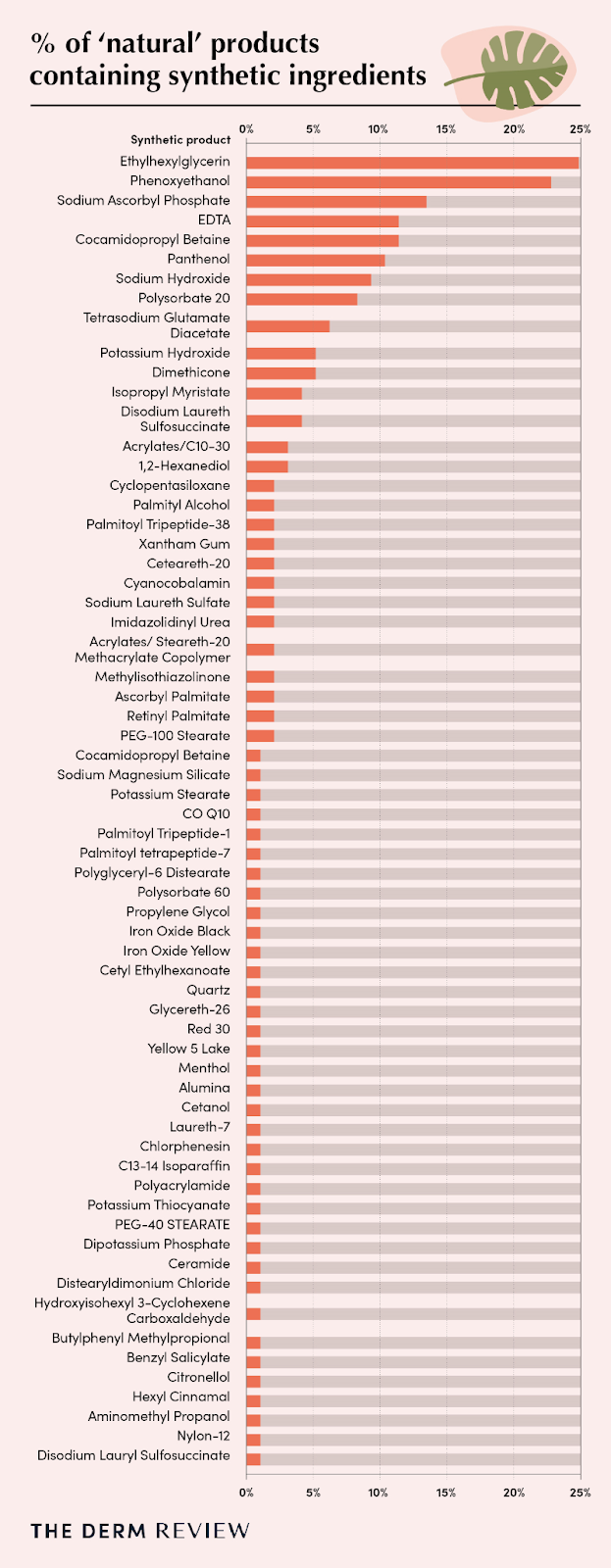
Products containing synthetic ingredients
Out of the product types we looked out, all of the serums contained at least one synthetic ingredient. Out of the “natural” face masks on the list 78% contained synthetic ingredients, while 58% of moisturizers and 55% of cleaners contained synthetic agents.
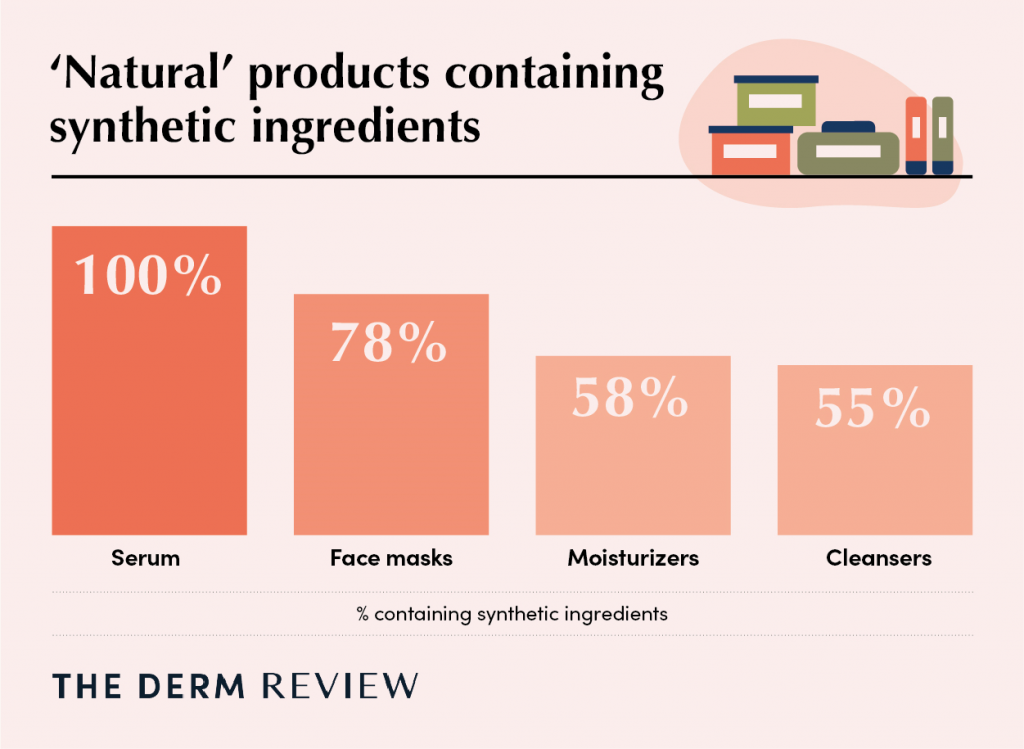
Are all synthetic ingredients bad?
No, and not all natural products are good.
Some chemical ingredients have been scientifically developed to be more gentle on our skin and more cost-effective to formulate. Other synthetic ingredients are processed to mimic bioavailable products that may be rare or threatened in the wild, and are aiming to prevent damage to biodiversity and environmental destruction.
For consumers, it can be difficult to tell the difference between the “good” and “bad” when reading a skincare label. Some long chemical-sounding words can sound “scary”, and many consumers may feel that the product feels safer if they see ingredients they recognise on the list.
When it comes to the synthetic versus natural skincare debate, it is not black and white. However, synthetic products are often demonized, and as a result, consumers seek out to find natural alternatives. Indeed, a 2018 survey showed that the vast majority of people (90%) believe that natural or naturally-derived beauty ingredients are better for them.
It is important to remember though, that just because something is natural doesn’t mean it’s safe. Some natural ingredients, such as essential oils, could be poisonous if used incorrectly, and many natural ingredients can cause more irritation to the skin than synthetic alternatives.
Elle MacLeman, Skincare Biochemist here at The Derm Review says:
“As we’ve established, natural is not always better, but despite that, consumers have the right to know whether the products they buy are indeed natural or not.”
“Sadly many brands overuse the word “natural” in their marketing in order to sell more products, and that feels misleading and deceptive. Especially as our research found that these products tend to be priced higher while not necessarily being better, safer or more environmentally friendly.”
“I think one of the problems is that the industry is pretty much unregulated when it comes to making claims. For instance, it’s common to see ‘chemical-free’ products on the shelves, but that doesn’t make any sense as even water is a chemical.”
Methodology
We searched Amazon.com during July 2021 for phrases such as ‘natural skin care’, ‘natural moisturizer’ and looked at the top 100 best-selling products that came up within the search results. For pricing, we compared the $ per Fl Oz on products marketed as “natural” with the same type of skincare products that didn’t contain the word natural.
Sources
Byrdie.com, Everything You Need to Know About Sodium Ascorbyl Phosphate
Glamour.co.uk, Natural vs synthetic: what do these terms really mean and which is better for our skin?
Globalcitizen.org, The Difficult Truth About ‘Natural’ Beauty’s Contribution to Climate Change
Healthline.com, Should You Be Going Sulfate-Free?
Vox.com, The “natural” beauty industry is on the rise because we’re scared of chemicals

